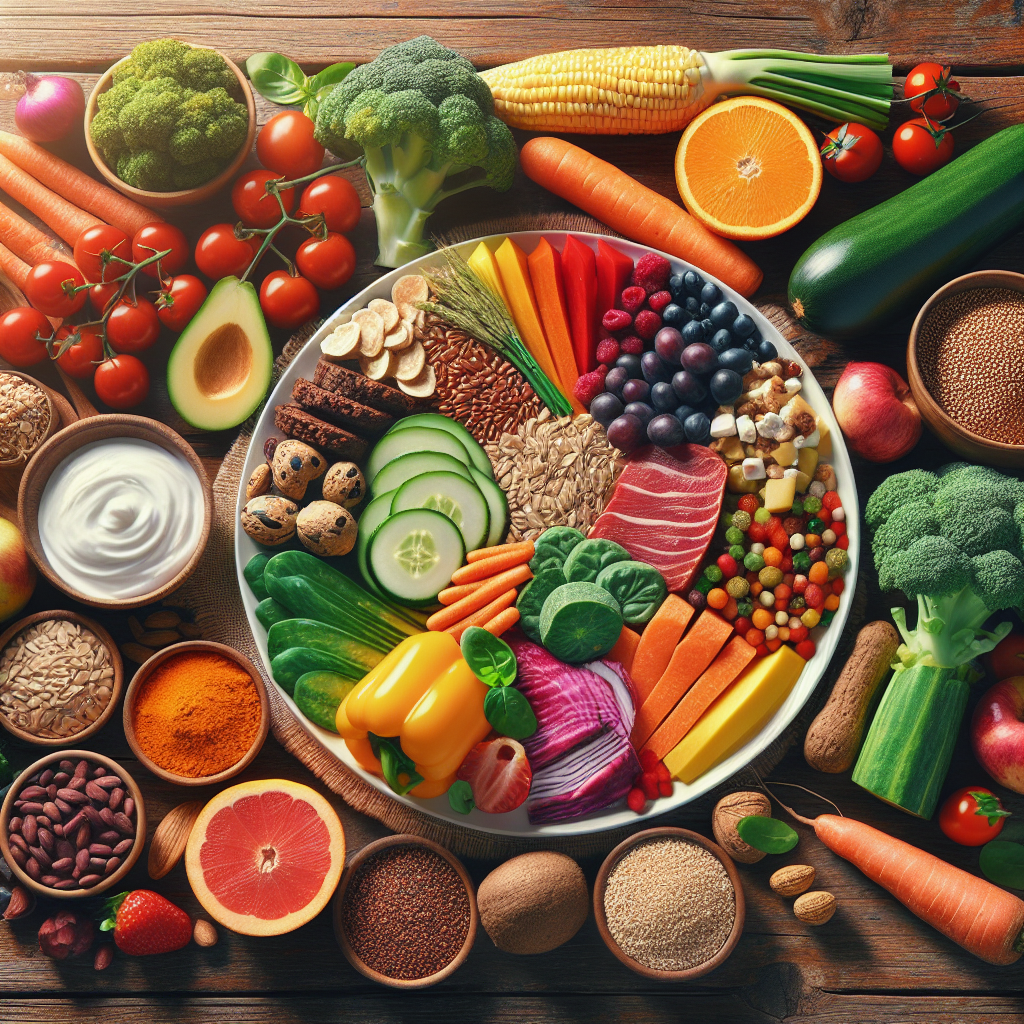Eating a balanced and nutritious diet is essential for maintaining good health and overall well-being. A well-balanced diet provides the necessary nutrients, vitamins, and minerals that our bodies need to function properly and stay healthy. However, with so many different diets and food trends out there, it can be overwhelming to know where to start. In this article, we will discuss some tips for eating a balanced and nutritious diet and answer some frequently asked questions about nutrition.
Tips for Eating a Balanced and Nutritious Diet
1. Include a variety of foods in your diet: Eating a variety of foods ensures that you get a wide range of nutrients that your body needs to function properly. Include fruits, vegetables, whole grains, lean proteins, and healthy fats in your diet to ensure you are getting all the necessary nutrients.
2. Eat plenty of fruits and vegetables: Fruits and vegetables are rich in vitamins, minerals, and antioxidants that are essential for good health. Aim to include a variety of fruits and vegetables in your diet every day to ensure you are getting a wide range of nutrients.
3. Choose whole grains over refined grains: Whole grains are a good source of fiber, vitamins, and minerals. Choose whole grains such as brown rice, quinoa, oats, and whole wheat bread over refined grains like white rice and white bread to ensure you are getting the most nutrients from your food.
4. Include lean proteins in your diet: Protein is essential for building and repairing tissues in the body. Include lean proteins such as chicken, fish, tofu, and legumes in your diet to ensure you are getting an adequate amount of protein.
5. Limit processed foods and sugary drinks: Processed foods and sugary drinks are high in calories, sugar, and unhealthy fats. Limit your intake of these foods and opt for whole, unprocessed foods instead to ensure you are getting the most nutrients from your food.
6. Stay hydrated: Drinking plenty of water is essential for good health. Aim to drink at least 8-10 glasses of water a day to stay hydrated and help your body function properly.
7. Eat regular meals: Eating regular meals helps to regulate your blood sugar levels and keep your energy levels stable throughout the day. Aim to eat three meals a day with healthy snacks in between to keep your energy levels up.
8. Practice portion control: Portion control is important for maintaining a healthy weight and ensuring you are getting the right amount of nutrients from your food. Use smaller plates, measure your portions, and listen to your body’s hunger cues to avoid overeating.
9. Cook at home: Cooking at home allows you to control the ingredients in your meals and ensure you are getting a balanced and nutritious diet. Try to cook at home as much as possible and experiment with new recipes to keep things interesting.
10. Practice mindful eating: Mindful eating involves paying attention to your body’s hunger cues and eating slowly to savor your food. Practice mindful eating by eating without distractions, chewing your food thoroughly, and listening to your body’s hunger cues.
FAQs
Q: What is a balanced diet?
A: A balanced diet is one that includes a variety of foods from all the food groups, including fruits, vegetables, whole grains, lean proteins, and healthy fats. A balanced diet provides the necessary nutrients, vitamins, and minerals that your body needs to function properly.
Q: How many servings of fruits and vegetables should I eat each day?
A: The recommended daily intake of fruits and vegetables varies depending on your age, sex, and activity level. However, a general guideline is to aim for at least 5-9 servings of fruits and vegetables each day.
Q: How can I ensure I am getting enough protein in my diet?
A: Include a variety of protein sources in your diet, such as lean meats, fish, tofu, legumes, and dairy products. Aim to include a source of protein in each meal to ensure you are getting an adequate amount of protein.
Q: Is it okay to indulge in treats occasionally?
A: Yes, it is okay to indulge in treats occasionally as part of a balanced diet. However, it is important to enjoy treats in moderation and balance them with nutritious foods to ensure you are getting the necessary nutrients from your diet.
Q: How can I maintain a healthy weight with a balanced diet?
A: Maintaining a healthy weight with a balanced diet involves eating a variety of foods in moderation, practicing portion control, staying active, and listening to your body’s hunger cues. By following these tips, you can maintain a healthy weight and feel your best.
In conclusion, eating a balanced and nutritious diet is essential for maintaining good health and overall well-being. By following these tips and answering frequently asked questions about nutrition, you can ensure you are getting the necessary nutrients, vitamins, and minerals that your body needs to function properly. Remember to include a variety of foods in your diet, eat plenty of fruits and vegetables, choose whole grains over refined grains, include lean proteins in your diet, limit processed foods and sugary drinks, stay hydrated, eat regular meals, practice portion control, cook at home, and practice mindful eating to ensure you are getting a balanced and nutritious diet. By making small changes to your diet and lifestyle, you can improve your health and feel your best.

